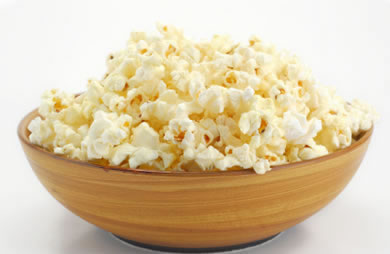|
My 4 and 2-year old are very curious about the baby growing in my belly. My daughter often asks if the baby likes peanut butter or cheese, two foods that are staples in my diet these days. I try to explain to her that the baby doesn't exactly taste what I'm tasting, but that's a hard concept for a 4-year old to grasp. Now I'm learning that maybe the baby does taste more than I would have thought. New research shows that what a woman eats during pregnancy could shape baby's taste preferences later in life. The study, published in the journal Pediatrics, found that the amniotic fluid surrounding the baby in-utero is flavored by the foods the mother has consumed within the past few hours. By the time a woman is half-way through her pregnancy, baby is drinking several ounces of this fluid daily. "To determine if flavors are passed from the mother to the baby via the amniotic fluid, researchers gave women garlic capsules or sugar capsules before taking a routine sample of their amniotic fluid — and then asked a panel of people to smell the samples. Researchers said they could pick out the samples easily from the women who ate garlic. The sense of taste is actually 90-percent smell, so they knew just from the odor that the babies could taste it." Memories of these flavors appear to form, which could result in taste or odor preferences for these foods later in life. Since mothers tend to feed their children in the same ways that they eat, researchers say this is just nature's way of introducing children to the foods they will eventually be eating themselves. In another study by the same researcher, "pregnant women were divided into three groups. One group was asked to drink carrot juice every day during their pregnancy, another during breastfeeding and a third to avoid carrots completely. Then when the children began to eat solid food, researchers fed them cereal made either with water, or carrot juice and videotaped their responses." Children who had been exposed to carrots ate more of the carrot-flavored cereal and responded less negatively than those who had not been previously exposed. Do you tend to eat many of the same foods your mother does? Do you notice a pattern with your own children? My mom and I eat a lot of the same things, although some of our preferences differ. For example, she loves fish and seafood, and I've never developed a liking for those foods. My children eat most of the same foods I do, but I think a lot of that has to do with what I prepare at mealtime, not necessarily what they would gravitate to if they made their own foods. What do you think? |
More From SparkPeople
|













.jpg)

